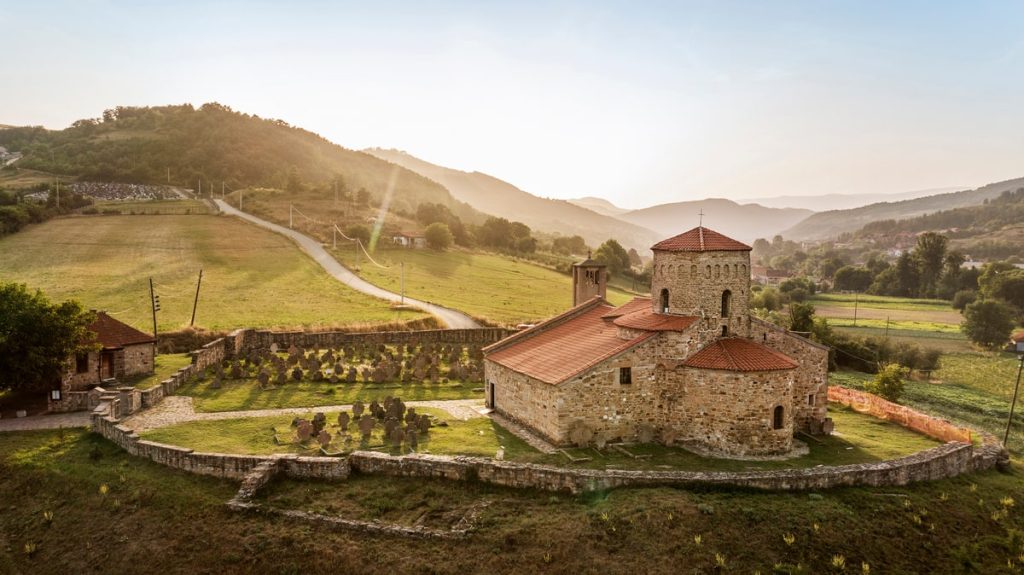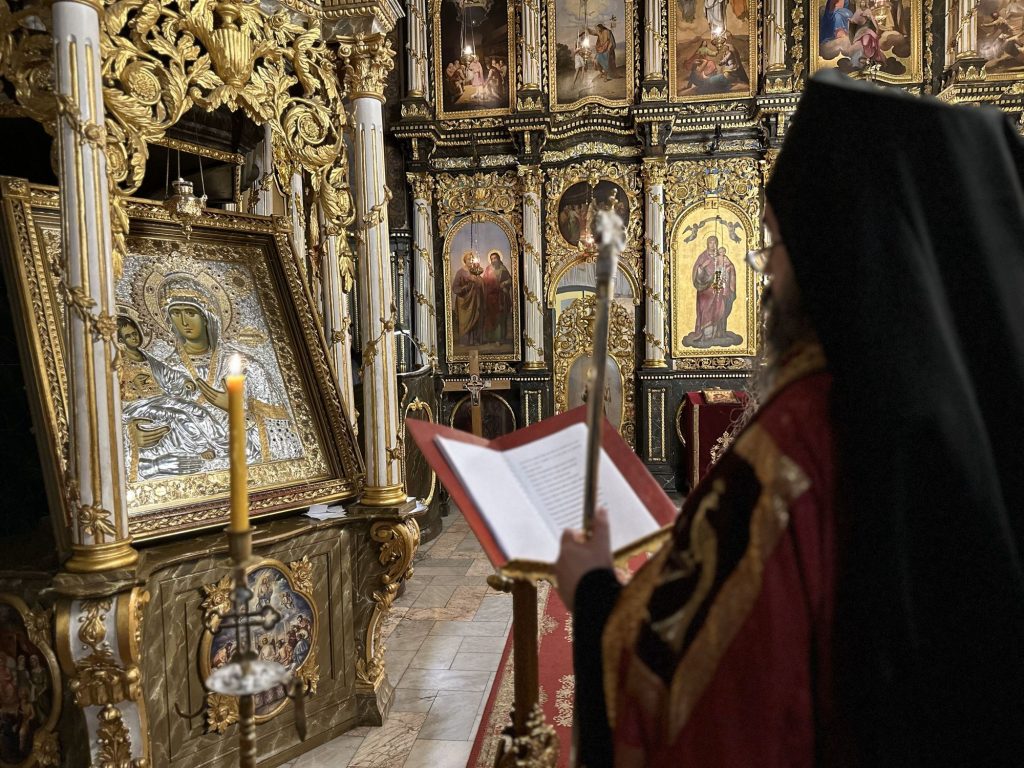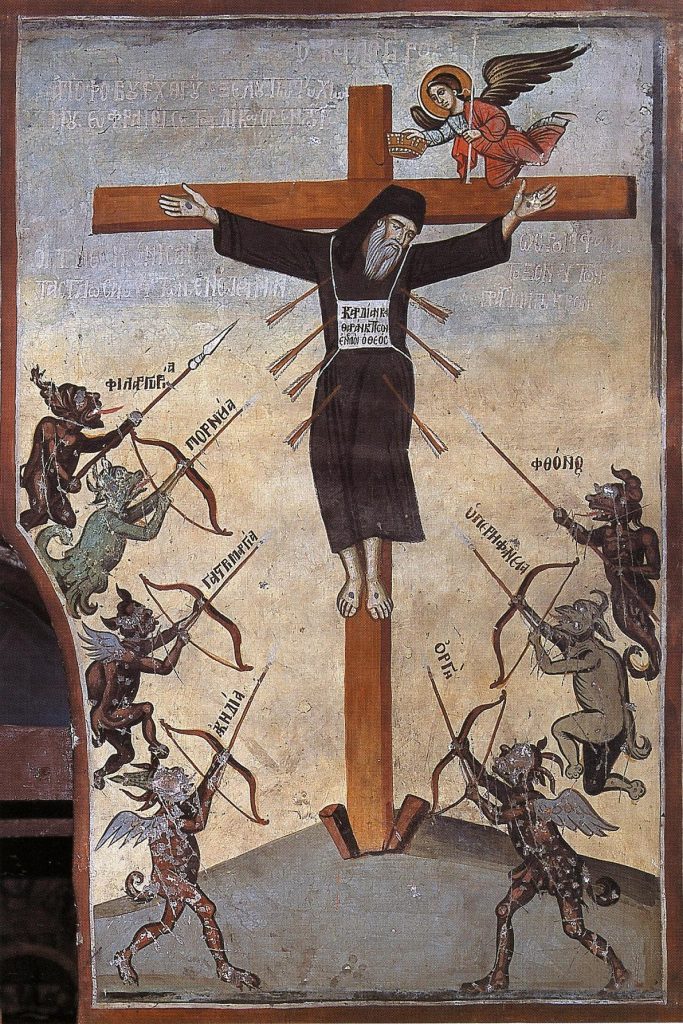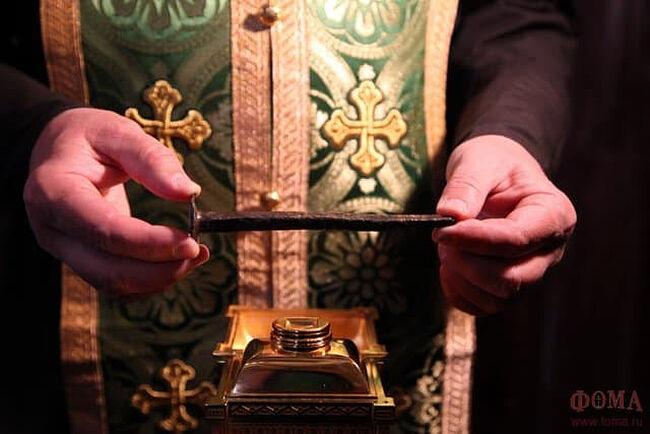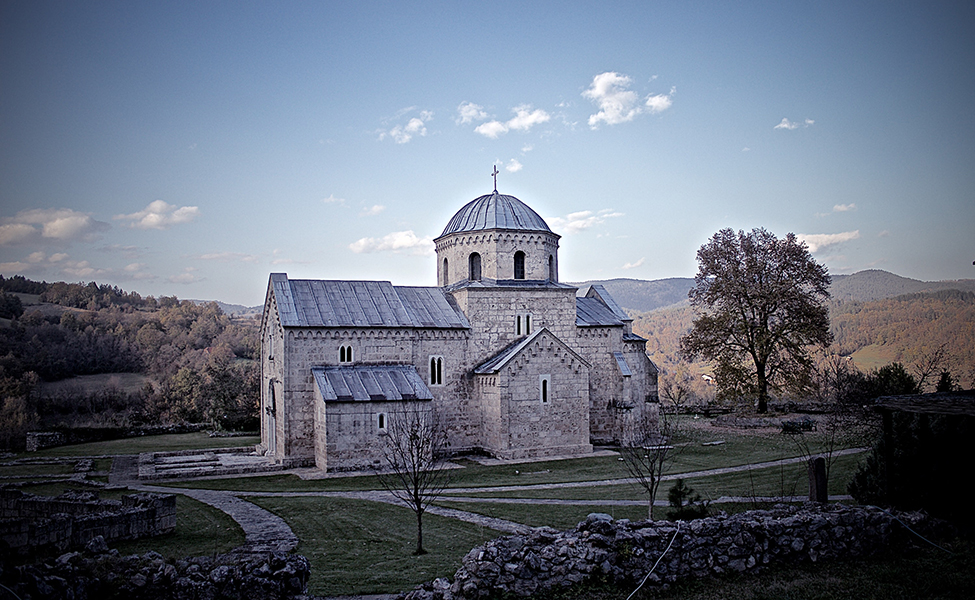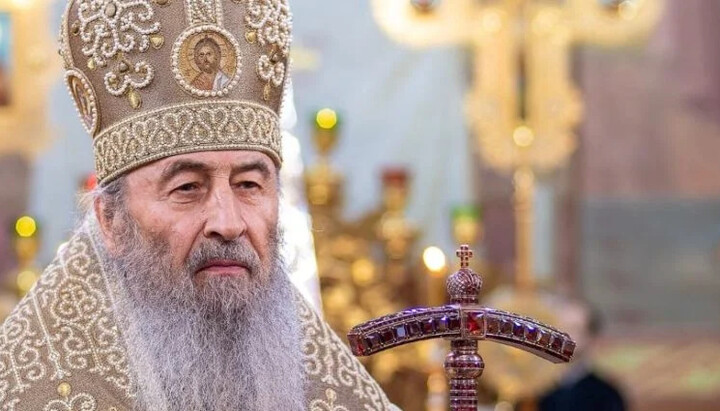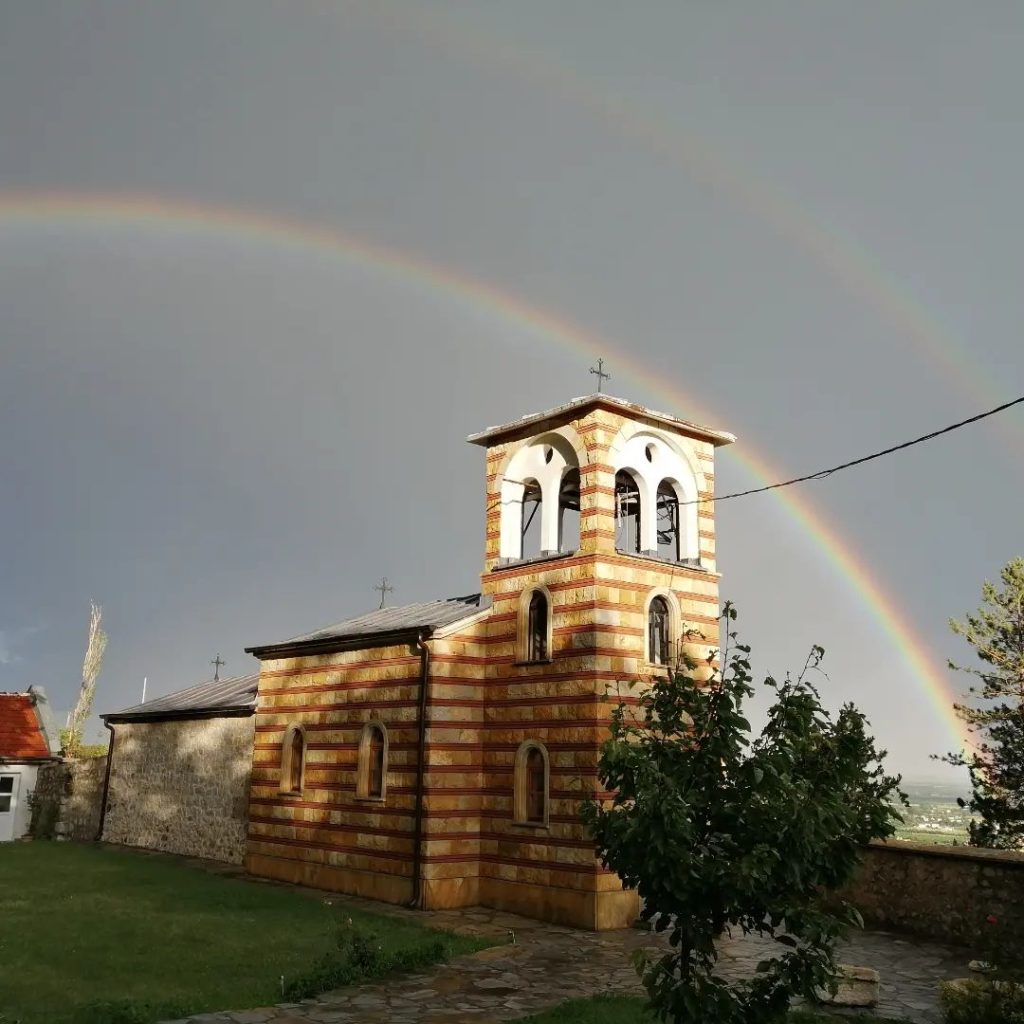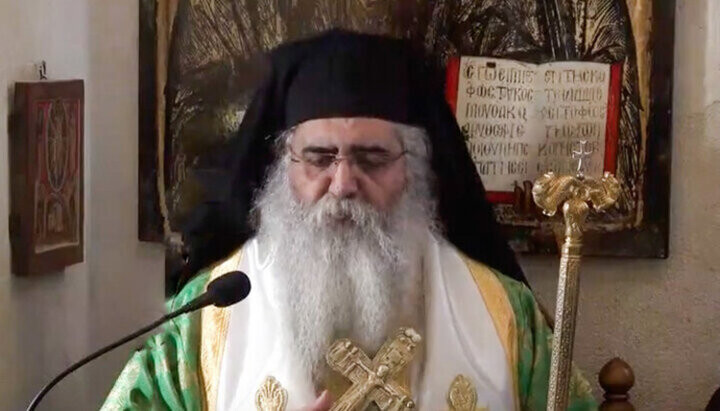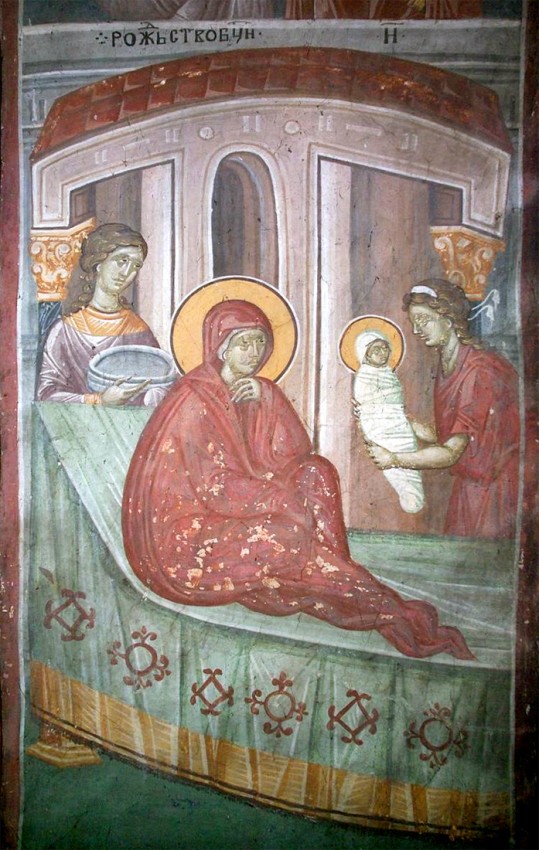Given that Paul made the same confession of faith as Peter, and had the same zeal, humility and love, surely they received the same rewards from Him Who measures everything with completely just scales, yardstick and plumbline. Anything else would be unreasonable. That is why the Lord told Peter, Thou art Peter and upon this rock I will build my church (Matt. 16:18), whereas He said to Ananias of Paul, He is a chosen vessel unto me, to bear my name before the Gentiles and kings (Acts 9:15). Which name? Clearly the name we have been given, the name of Christ’s Church, which rests on the foundation stone of Peter. Notice that Peter and Paul are equal in prominence and glory, and both hold up the Church. Consequently the Church now bestows one and the same honour on both, and celebrates them together with equal esteem. As we consider the outcome of their lives, let us imitate how they lived, or at least how they were restored through humility and repentance, even if we cannot attain to their other great and exalted achievements, which are appropriate to great men and fitting for great men to emulate. In fact, some aspects of their lives are probably impossible for anyone to imitate. Amendment through repentance, however, is more appropriate for us than for the great, since we all sin many times every day, and unless we lay hold of salvation through continuous repentance, we have no hope of it from any other source.
St. Gregory Palamas
Source: The Orthodox Church in America

